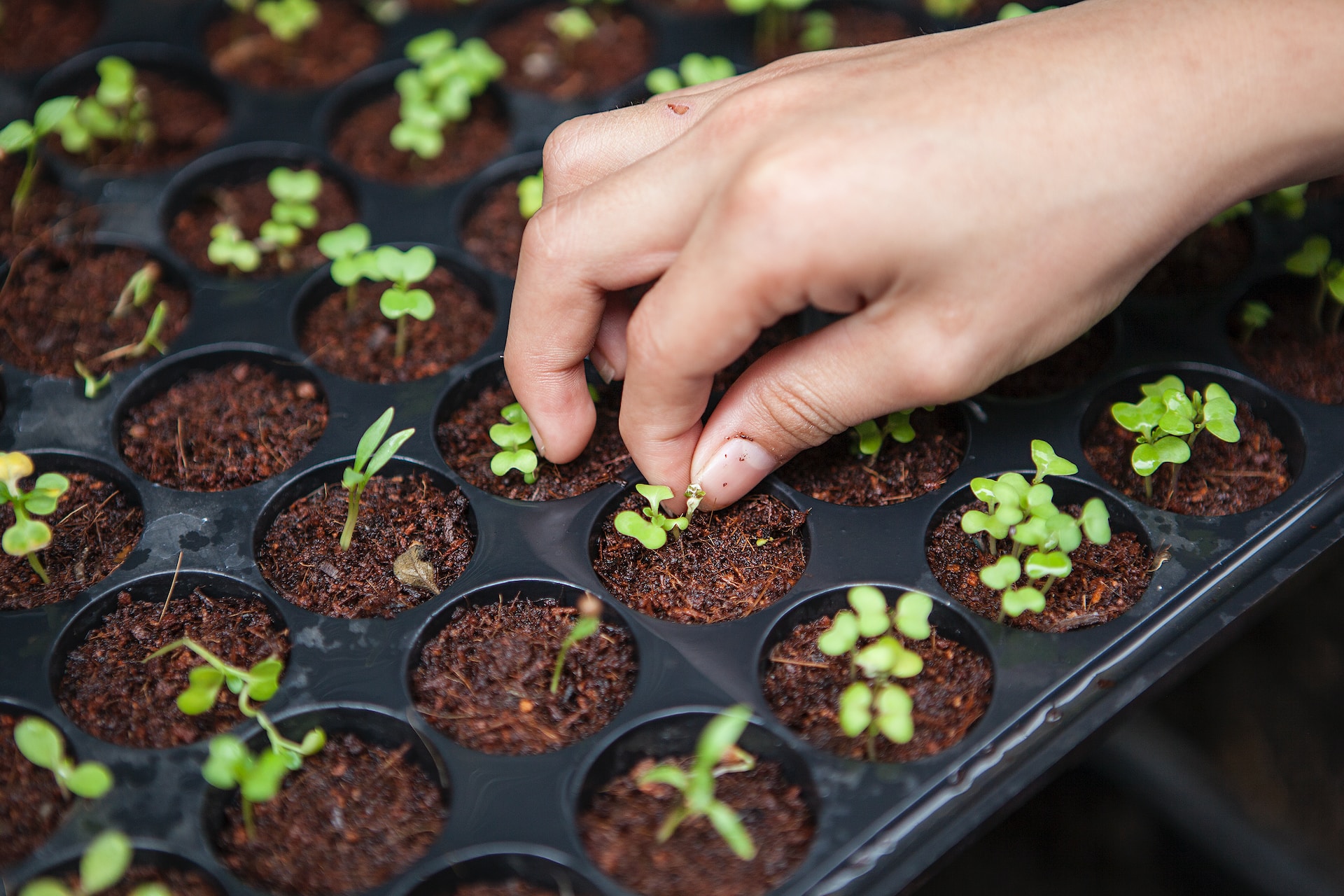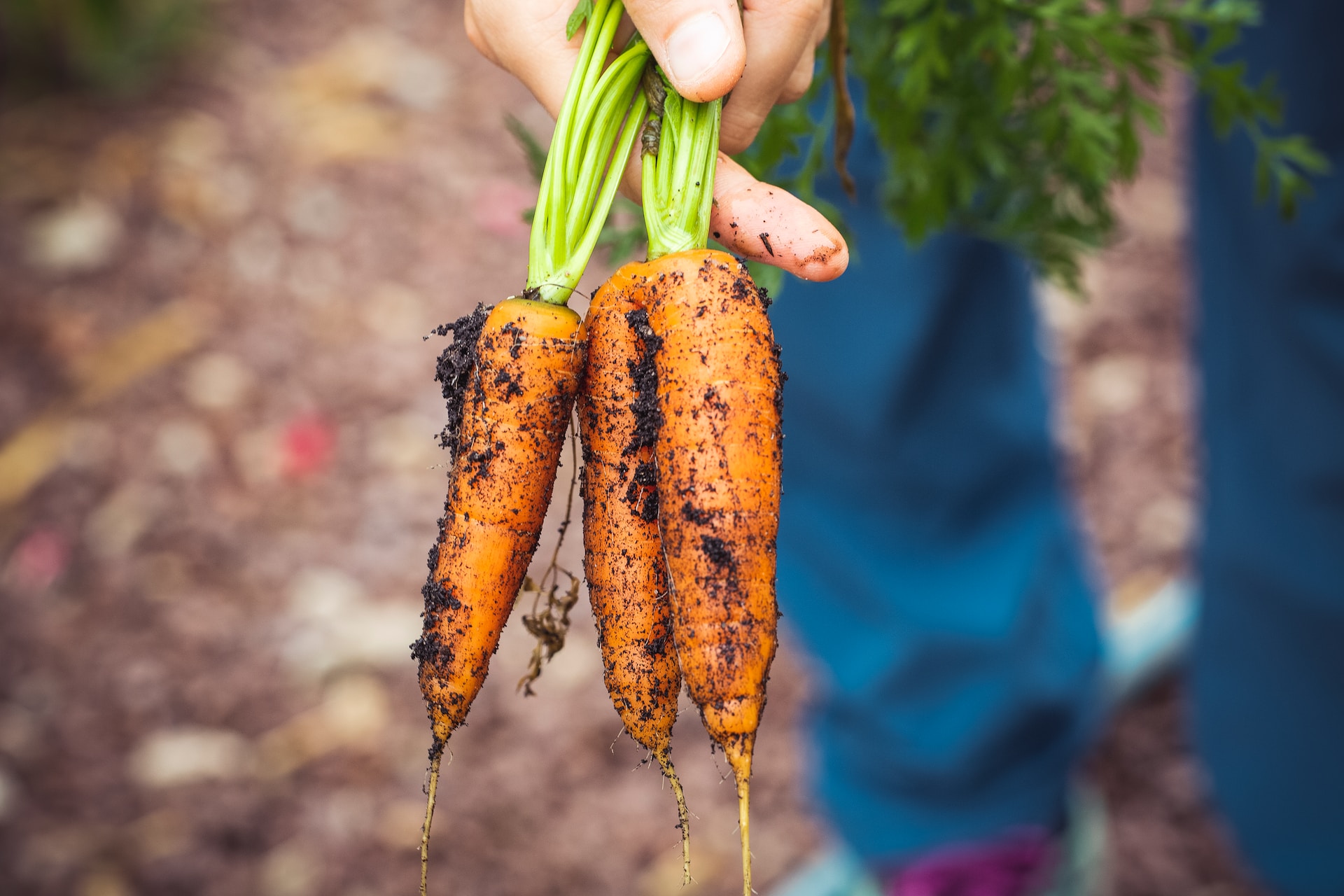When we think about the essential aspects of human civilization, agriculture and farming undoubtedly hold a crucial place. These practices are the foundation of our food systems, providing sustenance and nourishment for billions of people worldwide. Farmers, with their dedication and hard work, play a vital role in cultivating crops and raising livestock, ensuring a steady supply of food to meet the ever-growing demands of our global population.
However, amid the vast array of agricultural practices, there exists a peculiar phenomenon that often leaves us intrigued: certain farmers choose not to consume the very crops they meticulously grow. It raises a fundamental question: why would those who toil tirelessly on their farms, nurturing plants from seed to harvest, abstain from enjoying the fruits of their labor on their own dinner tables?
This enigma sparks curiosity, as we may assume that farmers would naturally derive satisfaction and sustenance from the crops they cultivate. Yet, there are various reasons why farmers opt to sell their produce rather than consume it themselves. Understanding these reasons sheds light on the intricate dynamics and complexities that influence agricultural systems and the choices made by those at the heart of food production.
In this article, we delve into the intriguing phenomenon of farmers not consuming their own crops. We explore the multifaceted factors that contribute to this phenomenon, encompassing economic considerations, food safety regulations, market demands, cultural and social influences, as well as environmental sustainability. By examining these aspects, we aim to gain a comprehensive understanding of the choices made by farmers and the broader implications for our food systems.
Join us on this exploration as we uncover the fascinating world of agriculture and unravel the reasons behind why certain farmers abstain from consuming the bountiful crops they sow and nurture.
The Role of Farmers
At the core of agricultural practices, we find the figure of the farmer—a dedicated individual who embraces the noble profession of cultivating the land and rearing livestock. Farmers assume a crucial role in our society, taking on a myriad of responsibilities to ensure the production of food for the masses.
Their primary task revolves around the cultivation of crops. Farmers diligently prepare the soil, sow seeds, nurture plants, and engage in various agricultural practices to facilitate growth and maximize yields. They also play a vital role in managing livestock, overseeing animal husbandry, and ensuring the well-being of the animals under their care.
Providing food for others vs. personal consumption
One might assume that farmers would naturally consume a significant portion of the crops they grow. After all, they possess an intimate knowledge of their produce and have firsthand access to the freshest and most nutritious harvests. However, the reality often diverges from this expectation.
Farmers face a unique dilemma—a balancing act between providing food for others and meeting their own personal consumption needs. While their primary objective is to feed society, they must also address their own dietary requirements and preferences. As a result, farmers must make deliberate choices about how they allocate their harvests.
The decision to prioritize selling their crops rather than consuming them personally stems from a range of factors. These factors can include economic considerations, compliance with food safety regulations, crop specialization to meet market demands, and the implementation of sustainable farming practices. By understanding these reasons, we gain insight into the complex decision-making processes that shape the relationship between farmers and their own crops.
Reasons for Farmers not Eating Their Own Crops
Economic considerations
Selling crops for profit
One of the primary reasons why farmers choose not to consume their own crops is rooted in economic considerations. Agriculture is not only a livelihood but also a business. Farmers rely on the income generated from selling their produce to sustain their operations, support their families, and invest in future farming endeavors. Thus, it often makes financial sense for them to sell their crops rather than consume them personally.
Balancing supply and demand
Farmers must navigate the delicate balance between supply and demand in the market. While they may grow an abundance of crops, it is crucial to ensure that there is sufficient demand to sell their entire harvest. In some cases, the local market may already be saturated with the specific crops they grow. Therefore, selling their produce to other consumers or markets becomes a more viable option, allowing them to diversify their revenue streams and ensure profitability.
Food safety regulations and quality standards
Compliance with regulations
Food safety regulations and quality standards play a vital role in the agricultural industry. Farmers must adhere to stringent guidelines to ensure that their produce meets the necessary safety and quality criteria. This involves implementing practices such as pesticide management, proper handling and storage, and following specific harvesting protocols. In some cases, farmers may opt to sell their crops to certified distributors or retailers who can guarantee compliance with these regulations, thereby avoiding potential legal and reputational risks.
Ensuring consumer trust
Consumers place a significant emphasis on food safety and quality. By selling their crops to established distribution channels, farmers can provide consumers with the assurance that their produce has undergone rigorous testing and inspection processes. This helps to build consumer trust in the food they consume. While farmers may have confidence in the safety of their own crops, leveraging established distribution networks can enhance consumer confidence and foster long-term relationships with buyers.
Crop specialization and market demands
Focusing on cash crops
Farmers often specialize in cultivating specific crops based on market demands and profitability. These “cash crops” are those that have high demand, fetch a good price in the market, or align with regional agricultural trends. Due to limited resources and the need for efficiency, farmers may choose to dedicate their land and efforts to these cash crops, which may not align with their personal consumption preferences. Consequently, they opt to sell these crops to capitalize on market opportunities rather than consuming them themselves.
Meeting specific market needs
Certain crops may have niche markets or specialized uses that do not align with a farmer’s personal consumption patterns. For instance, exotic herbs, medicinal plants, or unique varieties of fruits and vegetables might have limited demand or be highly sought after by specific industries or consumer segments. Farmers may prioritize meeting these specific market needs, supplying their crops to customers who value their distinct qualities, rather than consuming them personally.
Seasonal and crop rotation practices
Timing and availability of crops
Farming operates within the framework of seasons, with different crops harvested at specific times of the year. Farmers may adopt crop rotation practices to maintain soil health, prevent pest infestations, and maximize yields. This means that at any given time, farmers may be cultivating crops that are not ready for immediate consumption. In such cases, it is more practical for farmers to sell their crops and acquire a diverse range of produce from other sources to meet their dietary needs.
Maintaining soil health and fertility
Crop rotation and diversification contribute to the long-term health and fertility of agricultural land. By cultivating a variety of crops and incorporating rotation practices, farmers can mitigate soil depletion and nutrient imbalances. This enhances the overall sustainability of their farming operations. Consequently, farmers may prioritize the long-term health of their land over immediate personal consumption, choosing to sell their crops and ensure the continued productivity of their soil.
Risk management and crop failures
Farming is inherently subject to various risks, including weather fluctuations, pests, and diseases. Crop failures or significant yield reductions can occur despite farmers’ best efforts. In such cases, farmers may need to sell their remaining crops to offset losses or recoup expenses. Selling the crops provides them with a financial buffer to mitigate the impact of unforeseen circumstances and helps ensure the viability of their farming operations.
Access to a variety of food sources
Farmers, like anyone else, have diverse dietary needs and preferences. While they have their own crops readily available, they may also have access to alternative food sources such as local markets, grocery stores, or community-supported agriculture programs. This access allows farmers to enjoy a variety of foods beyond what they cultivate themselves. They may opt to explore the culinary offerings of their region, savor seasonal delicacies, or simply indulge in the convenience of readily available food options.
Cultural and Social Factors
Traditional food preferences
Culinary traditions and regional cuisine
Cultural and regional food preferences play a significant role in the consumption choices of farmers. Traditional culinary practices and regional cuisine often dictate the types of crops and ingredients that are favored in a particular area. Farmers may prioritize growing crops that align with local tastes and preferences, even if they personally do not consume those specific crops. They recognize the importance of catering to the culinary heritage and diverse palates of their communities, contributing to the preservation and celebration of traditional food cultures.
Limited personal consumption of certain crops
In some instances, certain crops may have limited appeal or desirability for personal consumption by farmers. Factors such as taste, texture, or unfamiliarity may influence their dietary choices. Farmers may choose to sell these crops, as they recognize that others may have a greater appreciation or demand for them. This allows them to acquire alternative foods that align better with their personal preferences and culinary habits.
Access to alternative food sources
Availability of diverse food options
Farmers, like any other individuals, have diverse dietary preferences and nutritional needs. While they possess a bounty of crops at their fingertips, they may also have access to alternative food sources. Local markets, grocery stores, and food networks provide farmers with a wide range of options beyond their own crops. They can explore and enjoy the variety offered by these sources, opting for convenience and diversity in their diets.
Convenience and variety in diet
The demanding nature of farming often leaves farmers with limited time and energy to prepare meals. They may choose to prioritize convenience and simplicity in their diet by opting for readily available or processed food items. While they understand the nutritional value of their own crops, they may find it more convenient to rely on alternative food sources that require minimal preparation. This allows them to strike a balance between their farming responsibilities and personal well-being.
Cultural and social factors significantly influence the consumption choices of farmers. Their desire to cater to regional food preferences, their limited personal inclination toward certain crops, and their access to alternative food sources all contribute to the decision to sell rather than consume their own crops. As we explore the interplay between culture, society, and agricultural practices, we gain a deeper understanding of the complex factors that shape the relationship between farmers and the food they grow.
Environmental Considerations
Conservation and biodiversity
Preserving natural resources
Farmers are custodians of the land, recognizing the importance of sustainable farming practices to preserve natural resources. By selling their crops rather than consuming them, farmers can minimize their ecological footprint. They may choose to rotate crops, implement cover cropping techniques, and practice water conservation methods to ensure the long-term health and productivity of their land. By prioritizing conservation efforts, farmers contribute to the preservation of soil fertility, water quality, and overall ecosystem balance.
Promoting crop diversity
Crop diversity is essential for maintaining ecosystem resilience and mitigating the risks associated with mono-cropping. Farmers may opt to sell a portion of their harvest to support the cultivation of a diverse range of crops. This promotes biodiversity on their farms, fostering a healthy ecosystem that is less vulnerable to pests, diseases, and other environmental challenges. By prioritizing crop diversity, farmers contribute to the overall sustainability and resilience of agricultural systems.
Sustainable farming practices
Minimizing environmental impact
In an era marked by concerns about climate change and environmental degradation, farmers recognize the need for sustainable farming practices. By selling their crops, farmers may adopt environmentally friendly methods that minimize the use of synthetic fertilizers, pesticides, and other agrochemicals. They may embrace organic farming principles, utilize integrated pest management techniques, and explore regenerative agriculture practices. These approaches not only reduce the environmental impact of farming but also contribute to the production of healthier and more nutrient-rich crops.
Enhancing long-term sustainability
Farmers understand the importance of long-term sustainability in agriculture. They may invest in soil conservation measures, such as no-till farming or contour plowing, to prevent erosion and improve soil structure. Additionally, they may implement efficient irrigation systems and explore renewable energy sources to reduce their carbon footprint. By prioritizing the long-term sustainability of their farming practices, farmers contribute to the conservation of natural resources and create a more resilient and environmentally friendly food production system.
Environmental considerations guide the decisions of farmers when it comes to consuming their own crops. By selling their produce, farmers actively participate in conservation efforts and promote biodiversity on their farms. They embrace sustainable farming practices to minimize environmental impact and prioritize the long-term sustainability of their operations. Through these environmentally conscious choices, farmers play a vital role in safeguarding our ecosystems and ensuring the availability of nutritious and environmentally friendly food for generations to come.
Case Studies and Examples
Crop-specific instances
Examples of crops commonly sold rather than consumed
In the realm of agriculture, there are specific crops that are commonly sold by farmers rather than consumed directly. For instance, tobacco farmers often grow tobacco leaves but rarely consume the final tobacco products themselves. Similarly, coffee farmers may grow and harvest coffee beans, yet they may not consume the coffee they produce due to varying taste preferences or the availability of other beverage options. These examples highlight how certain crops are cultivated primarily for commercial purposes rather than personal consumption by the farmers themselves.
Regional and cultural variations
Contrasting practices in different parts of the world
Farmers’ choices regarding the consumption of their own crops can vary significantly based on regional and cultural factors. In some regions, such as parts of Asia, farmers tend to prioritize self-sufficiency and consume a significant portion of the crops they grow. They integrate their produce into their daily meals, reflecting a strong connection to local farming traditions. On the other hand, in highly specialized and commercialized agricultural regions, such as the large-scale farms in the United States or Europe, farmers often sell their crops to global markets, with minimal personal consumption. These variations demonstrate how cultural and regional influences shape the decisions made by farmers regarding the consumption of their own crops.
By examining crop-specific instances and contrasting practices in different regions, we gain valuable insights into the diverse approaches adopted by farmers worldwide. These case studies illuminate the complex interplay between market dynamics, cultural preferences, and individual choices, providing a deeper understanding of why certain farmers opt to sell their crops rather than consume them personally.
Through the lens of these examples, we begin to appreciate the multifaceted nature of farming practices and the various factors that influence the decisions made by farmers in relation to their own produce. By considering these case studies, we uncover the rich tapestry of agricultural experiences and gain a broader perspective on the choices made by farmers across the globe.
Conclusion
As we delve into the intriguing phenomenon of farmers not consuming their own crops, we uncover a myriad of factors that influence their decisions. The choices made by farmers reflect a delicate balance between economic considerations, compliance with food safety regulations, market demands, cultural and social factors, and environmental sustainability.
Farmers, as stewards of the land, bear the responsibility of providing food for society while also addressing their own dietary needs and preferences. Economic considerations often lead farmers to prioritize selling their crops for profit, ensuring the financial sustainability of their operations. Food safety regulations and quality standards compel farmers to comply with rigorous guidelines and build consumer trust by selling their produce through established distribution channels.
Crop specialization, seasonal practices, and market demands further shape the choices made by farmers. They focus on cultivating cash crops that meet market needs and align with regional culinary traditions, even if those crops may not necessarily align with their personal consumption preferences. Additionally, farmers consider the timing and availability of their crops, implementing crop rotation and diversification practices to maintain soil health and fertility.
Cultural and social factors also play a significant role. Farmers embrace traditional food preferences, catering to regional cuisine and culinary heritage. Their access to alternative food sources and the desire for convenience and dietary variety influence their decision to consume produce beyond their own crops.
Environmental considerations guide farmers in their choices, as they prioritize conservation, biodiversity, and sustainable farming practices. By selling their crops, farmers contribute to the preservation of natural resources, promote crop diversity, minimize environmental impact, and enhance long-term sustainability.
Through case studies and examples, we observe the crop-specific instances and regional variations in farmers’ consumption practices. These examples highlight the complex interplay of market dynamics, cultural traditions, and individual choices that shape farmers’ decisions.
In conclusion, the reasons why certain farmers do not consume their own crops are diverse and interconnected. Farmers’ roles extend beyond personal consumption as they strive to meet the demands of a growing population, adhere to regulations, and contribute to sustainable agricultural practices. By understanding the complex factors at play, we gain a deeper appreciation for the choices made by farmers and their crucial role in providing food for society while simultaneously navigating the complexities of agricultural systems.




